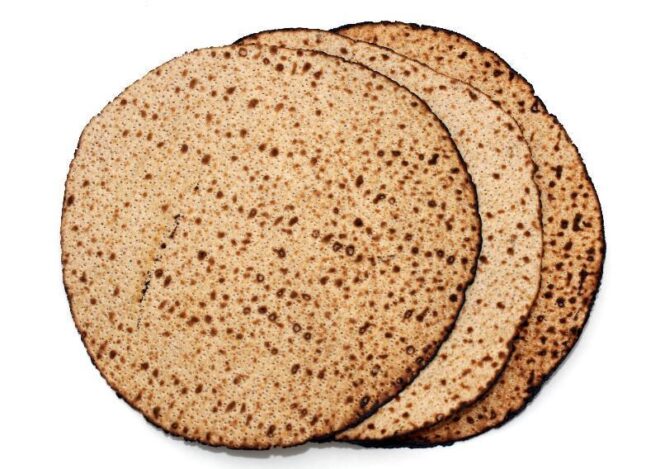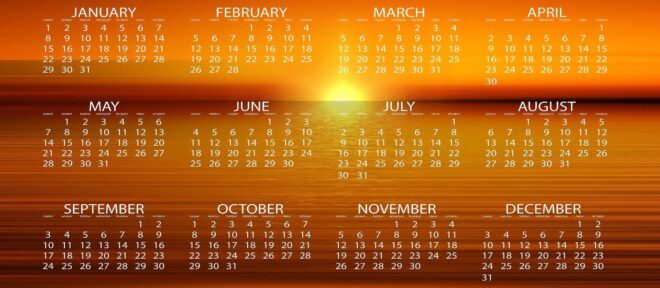 The Zmanim API did not have dedicated zmanim to claculate the Erev Pesach zmanim of sof zman achilas chametz (the latest time one can eat chametz), and sof zman biur chametz (the latest time to burn chametz) till the April 14 check in to the KosherJava Zmanim Project GitHub repository. The latest time for eating chametz is at the end of the 4th hour of the day. This corresponds to sof zman tfila. The API has about 12 of those, so that does not require any special programming, but to help developers who are unaware of how they work I created 3 wrapper getSofZmanAchilasChametz methods (getSofZmanAchilasChametzGRA(), getSofZmanAchilasChametzMGA72Minutes() and getSofZmanAchilasChametzMGA16Point1Degrees()) calling the 3 most commonly used getSofZmanTfila methods (getSofZmanTfilaGRA(), getSofZmanTfilaMGA72Minutes() and getSofZmanTfilaMGA16Point1Degrees()). For example here is the exact code used in getSofZmanAchilasChametzGRA()
The Zmanim API did not have dedicated zmanim to claculate the Erev Pesach zmanim of sof zman achilas chametz (the latest time one can eat chametz), and sof zman biur chametz (the latest time to burn chametz) till the April 14 check in to the KosherJava Zmanim Project GitHub repository. The latest time for eating chametz is at the end of the 4th hour of the day. This corresponds to sof zman tfila. The API has about 12 of those, so that does not require any special programming, but to help developers who are unaware of how they work I created 3 wrapper getSofZmanAchilasChametz methods (getSofZmanAchilasChametzGRA(), getSofZmanAchilasChametzMGA72Minutes() and getSofZmanAchilasChametzMGA16Point1Degrees()) calling the 3 most commonly used getSofZmanTfila methods (getSofZmanTfilaGRA(), getSofZmanTfilaMGA72Minutes() and getSofZmanTfilaMGA16Point1Degrees()). For example here is the exact code used in getSofZmanAchilasChametzGRA()
public Date getSofZmanAchilasChametzGRA() {
return getSofZmanTfilaGRA();
}
The API itself is very flexible, and as long as you know the calculation of the zman, you can easily calculate it. For example, to calculate sof zman biur chametz according to the GR"A, the time would be 5 shaos zmaniyos after sunrise. Using the Zmanim API this would be coded as:
Date SofZmanBiurChametzGra = getTimeOffset(getSeaLevelSunrise(), getShaahZmanisGra() * 5);
The exact code used in the API is:
public Date getSofZmanBiurChametzGRA() {
return getTimeOffset(getSeaLevelSunrise(), getShaahZmanisGra() * 5);
}
Developers who want to use the current API to generate these zmanim can use the following sample as a guide.
String locationName = "Lakewood, NJ";
double latitude = 40.09596; //Lakewood, NJ
double longitude = -74.22213; //Lakewood, NJ
double elevation = 0; //optional elevation
TimeZone timeZone = TimeZone.getTimeZone("America/New_York");
GeoLocation location = new GeoLocation(locationName, latitude, longitude, elevation, timeZone);
ComplexZmanimCalendar czc = new ComplexZmanimCalendar(location);
czc.getCalendar().set(Calendar.YEAR, 2011);
czc.getCalendar().set(Calendar.MONTH, Calendar.APRIL);
czc.getCalendar().set(Calendar.DAY_OF_MONTH, 18);
Date graAchilas = czc.getSofZmanTfilaGRA();
Date graBiur = czc.getTimeOffset(czc.getSeaLevelSunrise(), czc.getShaahZmanisGra() * 5);
Date mga72Achilas = czc.getSofZmanTfilaMGA72Minutes();
Date mga72Biur = czc.getTimeOffset(czc.getAlos72(), czc.getShaahZmanisMGA() * 5);
Date mga16Achilas = czc.getSofZmanTfilaMGA16Point1Degrees();
Date mga16Biur = czc.getTimeOffset(czc.getAlos16Point1Degrees(), czc.getShaahZmanis16Point1Degrees() * 5);
System.out.println("Erev Pesach Zmanim for " + locationName);
System.out.println("Sof Zman Achilas Chametz GRA: " + graAchilas);
System.out.println("Sof Zman Biur Chametz GRA: : " + graBiur);
System.out.println("Sof Zman Achilas Chametz MGA 72 Minutes: " + mga72Achilas);
System.out.println("Sof Zman Biur Chametz MGA 72 Minutes: " + mga72Biur);
System.out.println("Sof Zman Achilas Chametz MGA 16.1 Deg: " + mga16Achilas);
System.out.println("Sof Zman Biur Chametz MGA 16.1 Deg: " + mga16Biur);
this would output
C:\path\to\code>javac ErevPesachZmanim.java C:\path\to\code>java ErevPesachZmanim Erev Pesach Zmanim for Lakewood, NJ Sof Zman Achilas Chametz GRA: Mon Apr 18 10:42:42 EDT 2011 Sof Zman Biur Chametz GRA: : Mon Apr 18 11:49:39 EDT 2011 Sof Zman Achilas Chametz MGA 72 Minutes: Mon Apr 18 10:18:42 EDT 2011 Sof Zman Biur Chametz MGA 72 Minutes: Mon Apr 18 11:37:39 EDT 2011 Sof Zman Achilas Chametz MGA 16.1 Deg: Mon Apr 18 10:13:56 EDT 2011 Sof Zman Biur Chametz MGA 16.1 Deg: Mon Apr 18 11:35:18 EDT 2011
 Thanks to
Thanks to 

 The Zmanim API 1.2.1 was released today. Changed in this release were the addition of a few very early Tzais zmanim, and the removal of references to the
The Zmanim API 1.2.1 was released today. Changed in this release were the addition of a few very early Tzais zmanim, and the removal of references to the